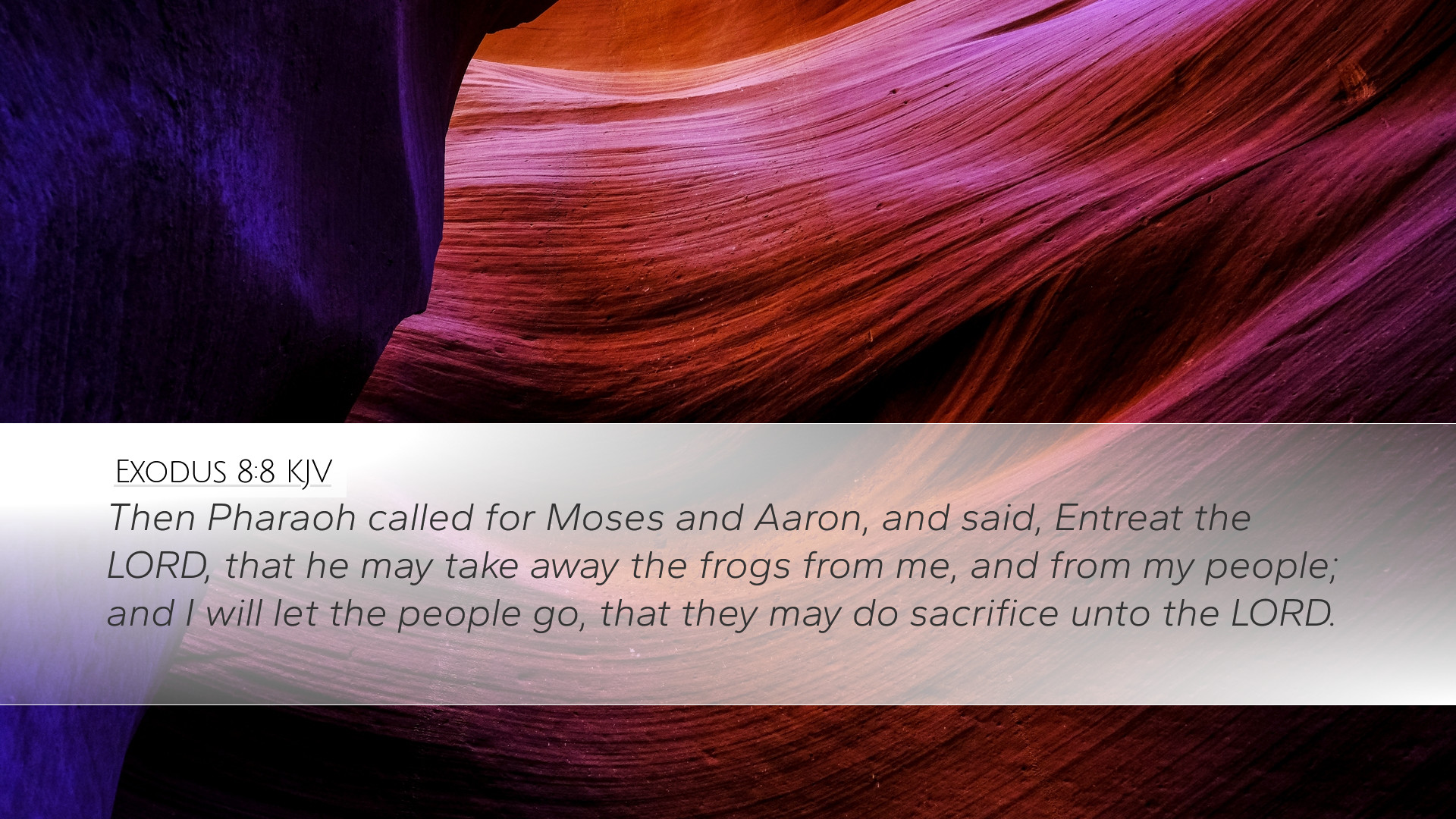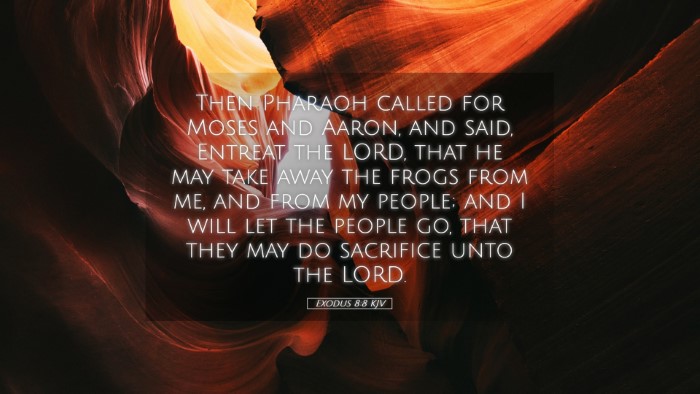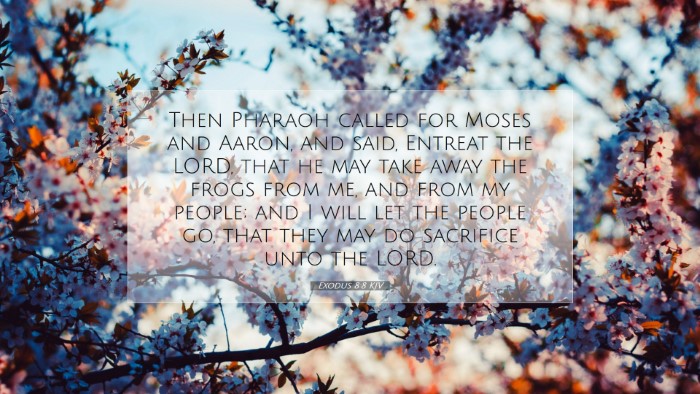Exodus 8:8 Commentary
Verse: "Then Pharaoh called for Moses and Aaron and said, 'Entreat the Lord that He may take away the frogs from me and from my people; and I will let the people go, that they may sacrifice to the Lord.'" (Exodus 8:8, NKJV)
Introduction
The eighth verse of Exodus chapter 8 is pivotal as it marks a significant moment in the contest between Pharaoh and the God of Israel. It highlights themes of oppression, divine authority, and the human condition in the face of calamity. The verse encapsulates Pharaoh’s reaction to the plague of frogs, demonstrating not only his distress but also the beginning of a negotiation prompted by suffering.
The Plague of Frogs
Within the context of the plagues, frogs serve as a symbol of God's judgment against Egypt's deities. The frogs in Egypt were considered sacred, thusly exacerbating the humiliation of the Egyptians as their idols proved powerless against the God of Israel.
Matthew Henry Commentary: According to Henry, this plague was not merely a sign of God's displeasure but served to expose the impotence of Egyptian magicians and deities. The overwhelming presence of frogs made life unbearable, which led Pharaoh to recognize his need for divine intervention.
Pharaoh's Call to Moses
Pharaoh's summons of Moses and Aaron signifies a moment of desperation. He acknowledges the power of the God of the Hebrews, albeit temporarily, as he seeks relief from the overwhelming infestation of frogs.
Albert Barnes Commentary: Barnes points out that Pharaoh’s request reveals the human tendency to seek help in crisis while simultaneously resisting total surrender to God's will. His pledge to let the Israelites go is conditional, showcasing his duplicitous nature.
Entreat the Lord
The phrase "entreat the Lord" suggests a plea for mercy. Pharaoh recognizes Moses’s connection to God, albeit reluctantly. This situation displays the often tenuous relationship between human authority and divine power.
Adam Clarke Commentary: Clarke emphasizes the nature of Pharaoh’s entreaty — that it is grounded in his own self-interest rather than a genuine conversion or repentance. This highlights a critical theological point: true humility before God must go beyond mere requests for relief from suffering.
Pharaoh’s Conditional Promise
Pharaoh's conditional promise to release the Israelites is indicative of his lack of true commitment to God's will. His “I will let the people go” illustrates how human leaders often bargain with God when faced with trials.
Matthew Henry Commentary: Henry notes that Pharaoh's willingness to negotiate is indicative of a heart still hardened against genuine obedience to God. While he seeks relief, there is no indication of a desire for true repentance or understanding of God's sovereignty.
The Urgency of God’s Mercy
Pharaoh’s plea serves as an important reminder of the character of God as merciful yet just. It underscores the necessity of divine intervention in the face of human impotence against sin and disobedience.
Albert Barnes Commentary: Barnes suggests that Pharaoh’s acknowledgment of God, although shallow, provides an opening for understanding the nature of true devotion — one rooted not in desperation, but in reverence and commitment to God's ways.
Theological Implications
The interaction in Exodus 8:8 reveals crucial themes central to biblical theology: power dynamics between humanity and God, the nature of repentance, and the call to obedience. The narrative urges readers and believers to reflect on their own responses to God in times of distress.
Lessons for Believers
- The Response to Crisis: Pharaoh’s initial response was to seek relief rather than seeking to know God.
- Conditional Obedience: True faith requires more than mere acknowledgment of God's power; it requires genuine repentance and surrender.
- Divine Power versus Human Authority: This passage invites reflection on the nature of authority and the ultimate sovereignty of God in all matters.
Conclusion
Exodus 8:8 serves as an instructive encounter detailing the struggle between divine will and human reluctance. It calls leaders, students, and scholars alike to examine what true repentance and obedience look like in the context of God's overwhelming power and mercy. As we engage with this text, may we be challenged to move beyond mere cries for relief, seeking instead holistic surrender to God’s transformative work in our lives.


